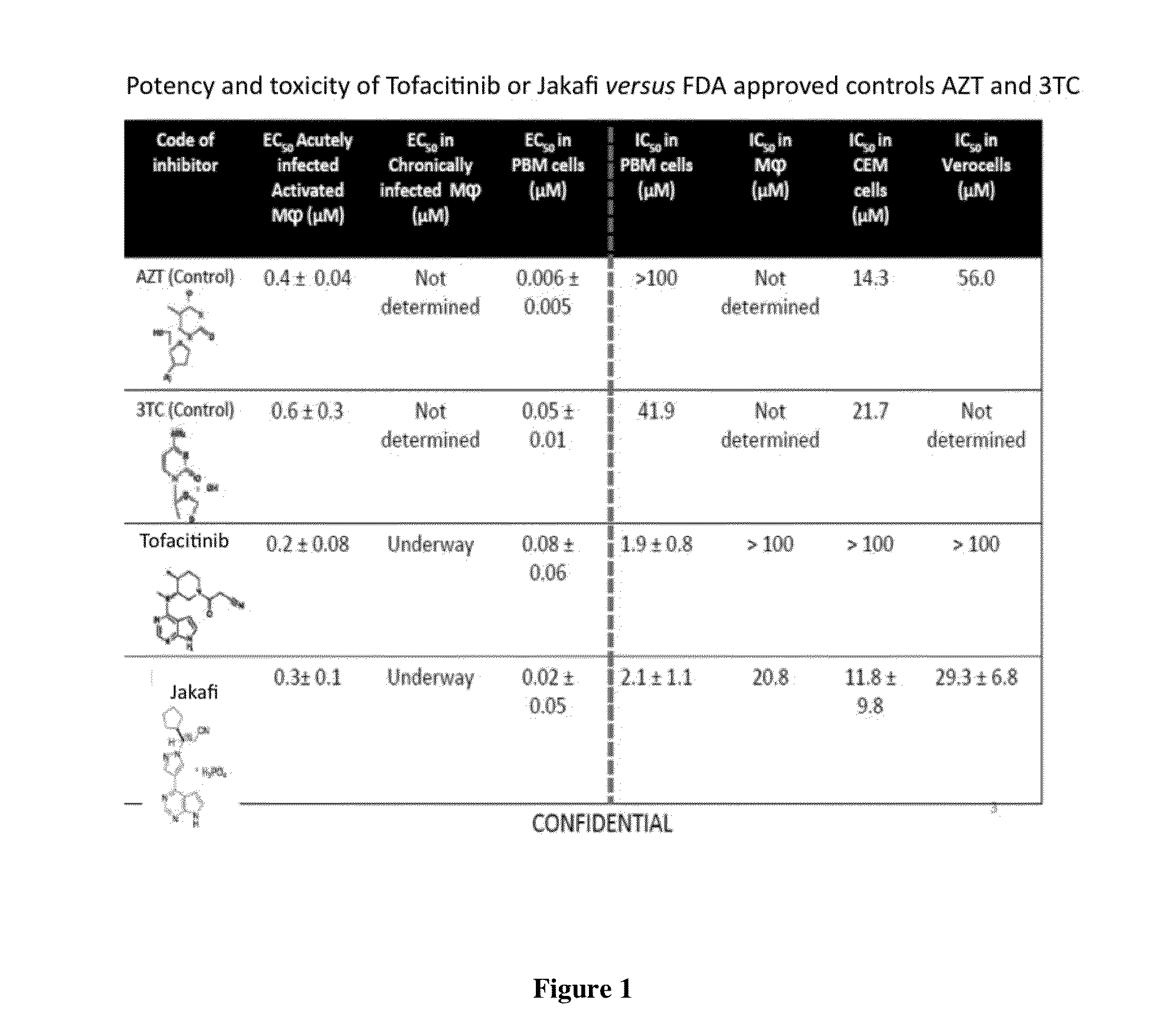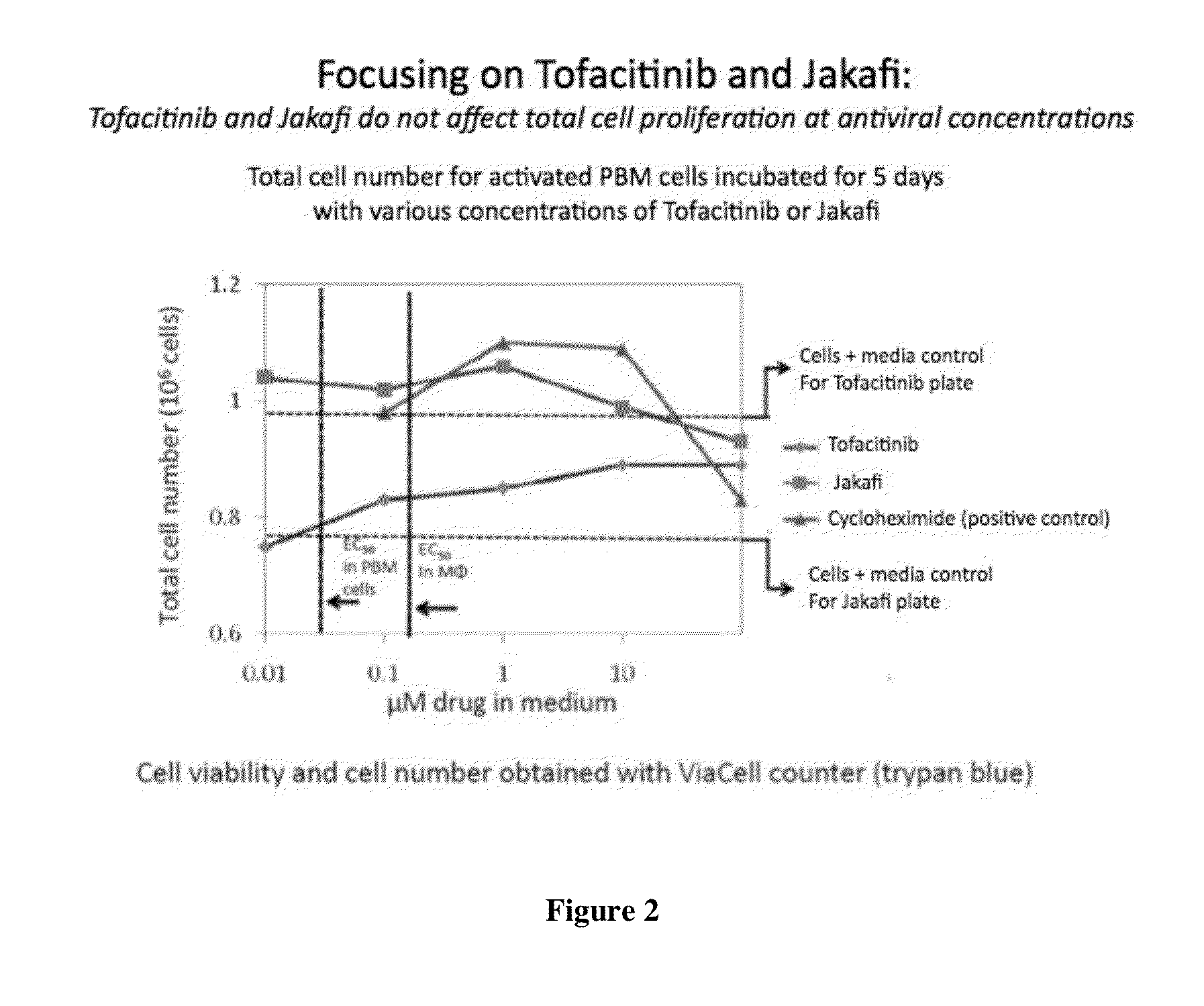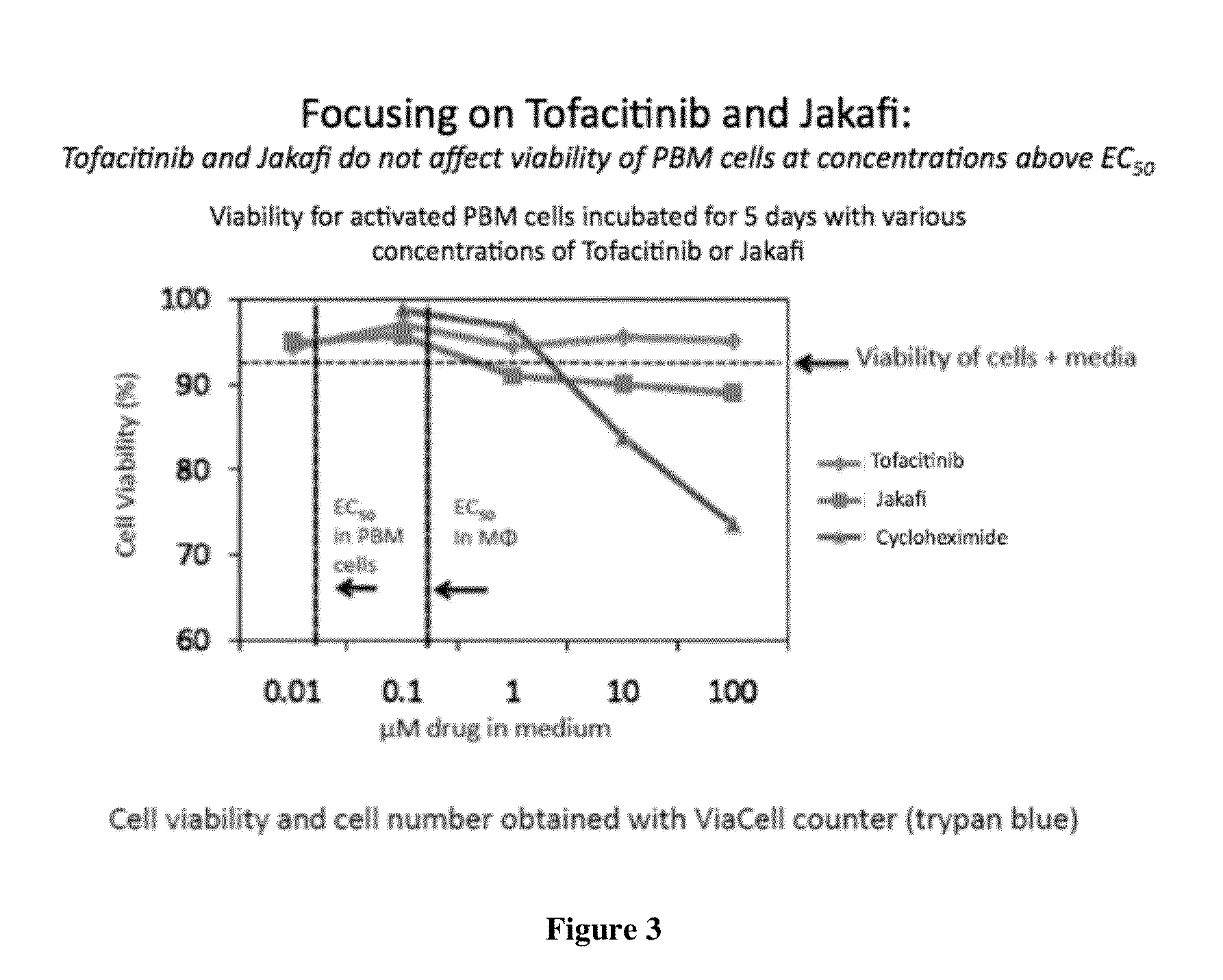Antiviral jak inhibitors useful in treating or preventing retroviral and other viral infections
a technology of antiviral jak inhibitors and inhibitors, which is applied in the direction of antibody medical ingredients, phosphorous compound active ingredients, peptide/protein ingredients, etc., can solve the problems of multi-drug resistance, patient can end up stopping treatment, drug resistance can still emerge, etc., to improve the absolute antiviral effect, reduce toxicity, and less drug
- Summary
- Abstract
- Description
- Claims
- Application Information
AI Technical Summary
Benefits of technology
Problems solved by technology
Method used
Image
Examples
example 1
Comparison of JAK Inhibitors to Conventional Antiretroviral Therapy
[0559]Current first line highly active antiretroviral therapy (HAART) for the treatment of human immunodeficiency virus (HIV-1) infections combines two nucleoside reverse transcriptase inhibitors (NRTI) together with either a protease inhibitor (PI) or non-nucleoside reverse transcriptase inhibitor (NNRTI). These drug combinations have markedly decreased mortality and morbidity from HIV-1 infections in the developed world.
[0560]Existing therapies cannot eradicate HIV-1 infection because of the compartmentalization of the virus and its latent properties. Therefore, chronic therapy remains the standard of care for the foreseeable future. Although HAART regimens are selected in part to minimize cross resistance, and thereby delay the emergence of resistant viruses, all regimens eventually fail, due primarily to lack of adherence to strict regimens, delayed toxicities and / or the emergence of drug-resistant HIV-1 strains,...
example 2
Mitochondrial Toxicity Assays in HepG2 Cells
[0576]i) Effect of the JAK Inhibitors Described Herein on Cell Growth and Lactic Acid Production:
[0577]The effect on the growth of HepG2 cells can be determined by incubating cells in the presence of 0 μM, 0.1 μM, 1 μM, 10 μM and 100 μM drug. Cells (5×104 per well) were plated into 12-well cell culture clusters in minimum essential medium with nonessential amino acids supplemented with 10% fetal bovine serum, 1% sodium pyruvate, and 1% penicillinstreptomycin and incubated for 4 days at 37° C. At the end of the incubation period the cell number was determined using a hemocytometer. Also taught by Pan-Zhou X-R, Cui L, Zhou X-J, Sommadossi J-P, Darley-Usmer V M. “Differential effects of antiretroviral nucleoside analogs on mitochondrial function in HepG2 cells” Antimicrob. Agents Chemother. 2000; 44: 496-503. To measure the effects of the compounds on lactic acid production, HepG2 cells from a stock culture can be diluted and plated in 12-wel...
example 3
Mitochondrial Toxicity Assays in Neuro2A Cells
[0582]To estimate the potential of the JAK inhibitor compounds to cause neuronal toxicity, mouse Neuro2A cells (American Type Culture Collection 131) can be used as a model system (see Ray A S, Hernandez-Santiago B I, Mathew J S, Murakami E, Bozeman C, Xie M Y, Dutschman G E, Gullen E, Yang Z, Hurwitz S, Cheng Y C, Chu C K, McClure H, Schinazi R F, Anderson K S. Mechanism of anti-human immunodeficiency virus activity of beta-D-6-cyclopropylamino-2′,3′-didehydro-2′,3′-dideoxyguanosine. Antimicrob. Agents Chemother. 2005, 49, 1994-2001). The concentrations necessary to inhibit cell growth by 50% (CC50) can be measured using the 3-(4,5-dimethyl-thiazol-2-yl)-2,5-diphenyltetrazolium bromide dye-based assay, as described. Perturbations in cellular lactic acid and mitochondrial DNA levels at defined concentrations of drug can be carried out as described above.
PUM
| Property | Measurement | Unit |
|---|---|---|
| concentration | aaaaa | aaaaa |
| pharmaceutical composition | aaaaa | aaaaa |
| pressures | aaaaa | aaaaa |
Abstract
Description
Claims
Application Information
 Login to View More
Login to View More - R&D
- Intellectual Property
- Life Sciences
- Materials
- Tech Scout
- Unparalleled Data Quality
- Higher Quality Content
- 60% Fewer Hallucinations
Browse by: Latest US Patents, China's latest patents, Technical Efficacy Thesaurus, Application Domain, Technology Topic, Popular Technical Reports.
© 2025 PatSnap. All rights reserved.Legal|Privacy policy|Modern Slavery Act Transparency Statement|Sitemap|About US| Contact US: help@patsnap.com



